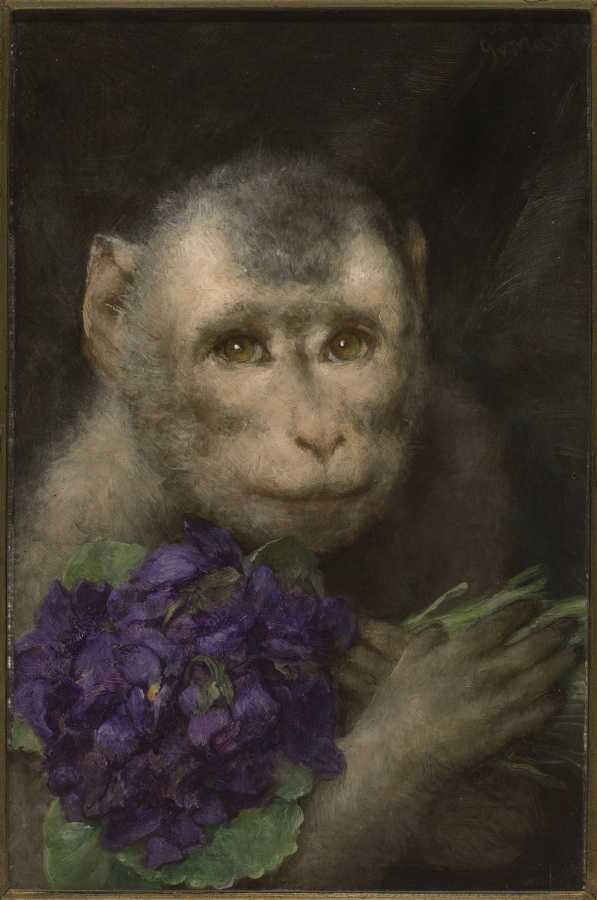This is a first-time exhibition for the musée d’Orsay, in partnership with the Muséum National d’Histoire Naturelle, devoted to work produced when sciences and arts intersect and comparing the main milestones in scientific discoveries with their parallels in the imagination.
The display will explore the origins of the world and the great discoveries of the 19th-century surrounding the natural world, with a particular focus on Darwin’s work. The rise in explorations and the development of natural sciences in the 19th-century, began to reveal the variety of living species in the wider world, and how little was known about the diversity of species. Studies started to reveal how the world gradually transformed over time. The discovery of fossils, now extinct species and prehistoric man raised questions such as: who was the first artist? And how should early man be depicted?
The public debates and developments regarding the scientific world distinctly influenced the artists of the era and the work which was consequently produced in their imagination of what the world used to be and look like. The symbolist aesthetic of metamorphosis, in the words of the exhibition’s curators, was populated with monsters and hybrids, centaurs, minotaurs and sirens amongst others. Art Nouveau and Symbolism were fascinated with the origins of life and all the creatures of the world, from single-cell forms to marine animals. During this era, nature became the inspiration for the arts, in particular decorative arts, in an even greater way than before.
This exhibition delves further into these interpretations of the natural world, and how science and art have collided in the past. It will focus on the period from the Renaissance to the First World War, looking at how the story of man was rediscovered. The environmental themes the display discusses are still relevant today, as it calls for an awareness of the environmental crisis we face today.
- Monday:
- Closed
- Tuesday:
-
09:30 - 18:00
- Wednesday:
-
09:30 - 18:00
- Thursday:
-
09:30 - 21:45
- Friday:
-
09:30 - 18:00
- Saturday:
-
09:30 - 18:00
- Sunday:
-
09:30 - 18:00
Opening Hours
Fed up with misleading or - even worse - fake reviews? Or trying to collate reviews yourself from the best sources? You can now rely on Divento’s Review of Reviews which aggregates content from hundreds of trusty sources from around the world to deliver reliable overall reviews.
 85 %
85 %
"Des tableaux spectaculaires montrent les grands voyages d exploration scientifique."
"L invention de la nature au XIXe siècle », une exposition, actuellement présentée à Orsay qu il ne faut pas manquer parmi toutes celles qu on peut enfin voir depuis le 19 mai ."
"D autres thèmes inspirent naturellement le peintre pourquoi le paon est il beau La beauté a t elle un fondement naturel L exposition montre aussi comment l évolution a été comprise différemment en France, au Royaume Uni et en Allemagne."
"Dans une semi pénombre, le parcours commence en splendeur par un petit « Jardin d’Éden » de Brueghel le Jeune et une immense Arche de Noé de Filippo Palizzi, double légende des origines bibliques."










